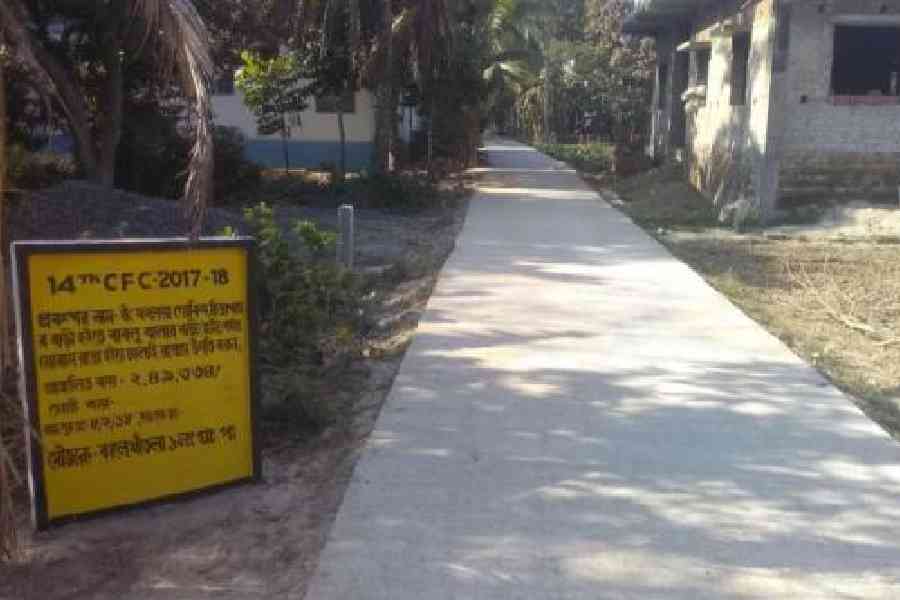Nearly 40 per cent of the 3,339 gram panchayats across Bengal have failed to spend even 25 per cent of the funds allotted to each of them under the 15th Finance Commission.
The development has left the state government in a spot at a time when it is racing against time to spend the first allotment of Rs 1,700 crore from the commission, which is a precondition to get the second tranche.
The government has to issue work orders worth Rs 1,700 crore before July 31 to secure the second installment of Rs 1,800 crore from the finance commission.
“A review of expenditure carried out by the rural bodies revealed that 1,308 of the 3,339 gram panchayats could not spend even 25 per cent of the funds allotted to them. A meeting will be held on July 15 at Sarat Sadan in Howrah with these rural bodies to ensure that they issue work orders at the earliest,” said a senior state government official.
According to reports available, the 3,339 rural bodies have cumulatively spent Rs 1,000, which means they have to use up another Rs 700 crore by July 31.
The finance panel funds received by the panchayats are used for development projects that the rural bodies have the freedom to choose. As much as 80 per cent of the funds are untied, which means they are not linked to specific projects.
Along with the first installment that reached earlier this year, there are some carried-forward funds that had been received in the previous years. The state wants to spend all the money at the earliest.
“So far, a total of Rs 1,018 crore has been spent this year. It is true that it would be a challenge to spend about Rs 700 crore in the remaining 19 days,” said an official.
A section of officials, however, said the state would be able to spend Rs 1,700 crore by the end of July as many panchayats were in the process of issuing worker orders against tenders floated after the Lok Sabha polls.
“The main reason why the panchayats could not use up the funds was the Lok Sabha elections…. It is expected that the panchayats that are lagging in terms of expenditure will improve their performance within a week,” said another official.
Sources in the panchayat department said the rural bodies were facing another problem too.
“In many panchayats there are two power groups and both want to have control over the funds. Both groups want to engage contractors of their choice. This tug of war between the rival groups created hurdles in issuing work orders,” said a source.
A section of officials said the problem has been identified and the top brass of the ruling establishment has sent a stern message to district-level leaders.
In addition to the first tranche of this year’s allotment, there are about Rs 1,500 crore in carried-forward funds lying with the panchayats, accrued over the years.
“The state government plans to spend these funds too as this is the only central cash to have reached the state from Delhi after the Centre stopped releasing funds under several rural development schemes, including the MGNREGA and the rural roads and rural housing projects,” said an official.
The state has set a target of spending Rs 50 crore everyday to utilise the finance commission funds, but the non-performing gram panchayats are hurting the plans, officials said.
“On an average we are spending nearly Rs 22 crore to Rs 25 crore a day…. The figure will improve once the non-performing gram panchayats start issuing work orders,” said a source.










